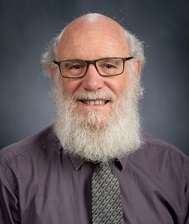May 31- June 2, 2015
AIARD is hosting their 51st annual conference in Washington D.C. on “Fostering Innovation in International Agriculture and Rural Development.” For more information and registration visit their website.
AIARD is hosting their 51st annual conference in Washington D.C. on “Fostering Innovation in International Agriculture and Rural Development.” For more information and registration visit their website.
 InnovATE and the Agriculture and Forestry University (AFU) teamed up to organize and conduct a workshop with support from WINROCK’s Farmer-to-Farmer Program, Principia College, Virginia Tech, and iDE Nepal. Agriculture and natural resource faculty from several institutions across Nepal gathered to learn transformative teaching skills and identify the current issues impacting Nepal’s agriculture and natural resource sectors. Continue reading
InnovATE and the Agriculture and Forestry University (AFU) teamed up to organize and conduct a workshop with support from WINROCK’s Farmer-to-Farmer Program, Principia College, Virginia Tech, and iDE Nepal. Agriculture and natural resource faculty from several institutions across Nepal gathered to learn transformative teaching skills and identify the current issues impacting Nepal’s agriculture and natural resource sectors. Continue reading
InnovATE hosted a symposium at the University of Florida in Gainesville that was centered on preparing successful students, faculty and institutions. Speakers from USAID, Higher Education for Development, World Bank, and various Universities both domestic and in Africa contributed to panels on these three areas, as well as a panel specifically on ensuring re-entry success for African faculty studying in the U.S. Continue reading
A group of experts was sequestered for a two-day workshop to set up a TAP framework for assessing the needs for and develop ways to meet needs for agriculture innovations systems capacity development.
See the TAP Workshop Agenda here.
See key concepts and definitions used at the workshop here.
By: Laina Schneider
Landlocked high in the Pamir mountain range of Central Asia is a country which often appears on lists of the least visited places on earth. Tajikistan is wedged between western China and Afghanistan, and was the poorest republic of the Soviet Union. Following independence in 1991, while former Soviet neighbors made great economic strides, the country was engaged in a civil war which lasted through the 1990s. Continue reading
 Dr. Keith M. Moore began his career at Virginia Tech in 1994 managing projects on natural resource management in West Africa and pest management in the Ukraine for what was then known as the Office of International Development. Dr. Moore has more than 30 years of worldwide experience in the design, implementation, and analysis of agricultural and natural resource-based projects and policies. He has conducted over 70 Short-Term Technical Assistance and Collaborative Research Missions for USAID, IFAD and FAO, and has coordinated the development of core training for agriculture- and natural resource-sector staff in the World Bank. He holds a bachelor’s degree in political economy from the University of California at Santa Cruz, a master’s degree in rural development from The Hague, Netherlands, and a Ph.D. in sociology from the University of Wisconsin-Madison. Dr. Moore’s expertise is in rural development policy, project monitoring and evaluation, conflict management, and gender issues. He has served as the performance assessment director for InnovATE and as a PI on scoping visits to Armenia, Uganda and the DRC.
Dr. Keith M. Moore began his career at Virginia Tech in 1994 managing projects on natural resource management in West Africa and pest management in the Ukraine for what was then known as the Office of International Development. Dr. Moore has more than 30 years of worldwide experience in the design, implementation, and analysis of agricultural and natural resource-based projects and policies. He has conducted over 70 Short-Term Technical Assistance and Collaborative Research Missions for USAID, IFAD and FAO, and has coordinated the development of core training for agriculture- and natural resource-sector staff in the World Bank. He holds a bachelor’s degree in political economy from the University of California at Santa Cruz, a master’s degree in rural development from The Hague, Netherlands, and a Ph.D. in sociology from the University of Wisconsin-Madison. Dr. Moore’s expertise is in rural development policy, project monitoring and evaluation, conflict management, and gender issues. He has served as the performance assessment director for InnovATE and as a PI on scoping visits to Armenia, Uganda and the DRC.
For farmers in Nepal, climate change is not an abstract fear, it’s a daily reality. Inconsistent weather, inadequate water resources, rising temperatures and shifting seasons mean that farmers are having to adapt their systems to keep producing, while at the same time meeting the growing population’s demand for food.
Now is a critical time to address the needs of farmers who the World Bank estimates, with others along the agricultural value chain, make up more than 65% of the total population. Mitigating the impacts of climate change could not only increase agricultural production, but also improve livelihoods of this large population. Continue reading